 MyDogBreeds
MyDogBreeds Mountain View Cur is originated from United States but Canadian Eskimo Dog is originated from Canada. Mountain View Cur may grow 7 cm / 2 inches shorter than Canadian Eskimo Dog. Mountain View Cur may weigh 11 kg / 24 pounds lesser than Canadian Eskimo Dog. Both Mountain View Cur and Canadian Eskimo Dog has almost same life span. Both Mountain View Cur and Canadian Eskimo Dog has same litter size. Mountain View Cur requires Low maintenance. But Canadian Eskimo Dog requires Moderate maintenance
Mountain View Cur is originated from United States but Canadian Eskimo Dog is originated from Canada. Mountain View Cur may grow 7 cm / 2 inches shorter than Canadian Eskimo Dog. Mountain View Cur may weigh 11 kg / 24 pounds lesser than Canadian Eskimo Dog. Both Mountain View Cur and Canadian Eskimo Dog has almost same life span. Both Mountain View Cur and Canadian Eskimo Dog has same litter size. Mountain View Cur requires Low maintenance. But Canadian Eskimo Dog requires Moderate maintenance
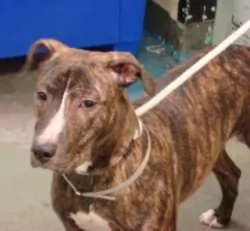 The Mountain View Cur is an American bred dog that resulted from years of deliberate breeding and careful culling of the litters to improve the Mountain Cur into a hunting dog with a better temperament and a stronger hunting instinct. Because of these generations of culling and refining the Mountain View Cur is so uniform within the breed that it is considered a thoroughbred as well as a purebred. Developed at the end of the 1980’s by Michael and Marie Bloodgood. The foundation for their breeding program was the Mountain Cur.
The Mountain View Cur is an American bred dog that resulted from years of deliberate breeding and careful culling of the litters to improve the Mountain Cur into a hunting dog with a better temperament and a stronger hunting instinct. Because of these generations of culling and refining the Mountain View Cur is so uniform within the breed that it is considered a thoroughbred as well as a purebred. Developed at the end of the 1980’s by Michael and Marie Bloodgood. The foundation for their breeding program was the Mountain Cur.
The new Mountain View Cur were meant to be stronger in every way than the original Mountain Cur. They could track, hunt and tree both large and small prey. It’s work ethic is unsurpassed regardless of the weather or terrain. Highly intelligent and motivated the Mount View Cur can use its incredible prey drive to follow the game at any cost. Yet it can be trusted off lease because while hunting the Mountain View Cur will instinctively go to the hunter and check in occasionally.
This breed is ultimate hunter, known for treeing squirrels and racoons. His strongest drive is to please the human he is with. He has a gentle, loving temperament. Because of their desire to please, they are great companion animals as well as hunters. In addition to coons and squirrels, the Mountain View Cur could hunt possum, coyote, pheasants, turkey, hare, grouse, hare and rabbits. They are also willing to fight with lions, bobcats, bears, and wild boars. Surprisingly they can herd as well.
They are a healthy breed and very hearty with a long lifespan. They are extremely popular in the mountains and hills of Appalachia, but they are rare and almost unknown outside the United States. Puppies are very expensive and there is a waiting list that could be very long. The original Mountain View Curs descended from just two Mountain Curs – one male, one female. As the program went on Mountain View Curs were bred to Mountain Views Curs and then other Mountain Curs were added in.
Originally the breed was registered as a part of the Kemmer Stock Breeders Association Registry. Eventually however the breeders of View Curs came to believe that they had an entirely new breed and the American Squirrel and Night Hunters Association was the choice to register the breed in 1995. One year later the Mountain View Cur Registry was founded.
 The Canadian Eskimo Dog dates way back to more than 4,000 years ago. This Arctic breed of dog was developed to pull sleds, and wasn’t considered as a pet but as a working dog – an important means to an end – a tool for use.
The Canadian Eskimo Dog dates way back to more than 4,000 years ago. This Arctic breed of dog was developed to pull sleds, and wasn’t considered as a pet but as a working dog – an important means to an end – a tool for use.
By the 1960s the dog breed had declined to such an extent that they were removed from UKC and AKC registries. It is believed that the breed would have in all likelihood become extinct if it weren’t for the efforts of Brian Ladoon, William Carpenter and John McGrath who formed the Eskimo Dog Research Foundation in 1972.
After breeding for 30 years, the dog has the biggest genetic stock colony of Canadian Eskimo Dogs and in May 2000, Nunavut, a Canadian territory, adopted the dog as the animal symbol for this region.
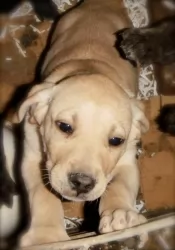 The Mountain View Cur is a rugged, healthy breed that has very little in common with its ancestor the Mountain Cur at least in its looks. The Mountain View Cur is born with no dewclaws while the Mountain Cur has them. The Mountain View Cur is a stronger and more muscular breed as well. They have a flat domed head with ears that are high set and short. Her eyes are dark and prominent, its neck and back strong and muscular, while its chest is deep. Half the pups are born with a bobtail and half have their tales docked. About 10% are black, brindle or brindle and black. They all have white on the feet, chest and muzzle.
The Mountain View Cur is a rugged, healthy breed that has very little in common with its ancestor the Mountain Cur at least in its looks. The Mountain View Cur is born with no dewclaws while the Mountain Cur has them. The Mountain View Cur is a stronger and more muscular breed as well. They have a flat domed head with ears that are high set and short. Her eyes are dark and prominent, its neck and back strong and muscular, while its chest is deep. Half the pups are born with a bobtail and half have their tales docked. About 10% are black, brindle or brindle and black. They all have white on the feet, chest and muzzle.
 The Canadian Eskimo Dog is a well-built, medium- to large sized dog looking much like a husky. The male Eskimo dog is somewhat bigger than the female, standing 58 – 70cm at the shoulder and weighing 30 - 40kg.
The Canadian Eskimo Dog is a well-built, medium- to large sized dog looking much like a husky. The male Eskimo dog is somewhat bigger than the female, standing 58 – 70cm at the shoulder and weighing 30 - 40kg.
The male often has some thick fur around the neck, giving him the appearance of looking larger than he actually is. He is slightly larger than the female. Other people say he has a similar appearance to a wolf.
He has a thick double coat which can be white, gray, fawn or even black and white. He has short, erect ears, dark brown eyes and a bushy, feathered tail which curls over the back. Sometimes you find blue eyes with the Canadian Eskimo Dog, and its only when you want to show him, that this isn’t acceptable.
The Canadian Eskimo Dog's temperament is hard working, tough, brave, alert and intelligent. When he is trained and socialized, which will be important for this breed, he becomes gentle and loving, forming a strong bond with his owner. He’ll also get along well with children in the home as well as other pets.
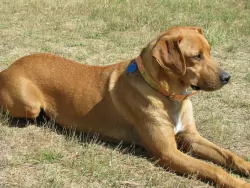 Very child friendly, playful and gentle
Very child friendly, playful and gentle
Scent and well-disciplined self-control
This breed is designed to work and to hunt. They are happiest when they have a job or are in the woods with you. They have excess energy and need space. They will not do well as a 24 hour inside dogs. They need space to run and hunt.
Highly intelligent, excellent ability to learn whatever you want to teach them.
 The Canadian Eskimo Dog is a dog which is responsive to training. With training and socialization, as a highly intelligent, strong-will dog he will need to be supervised by a firm, authoritative figure.
The Canadian Eskimo Dog is a dog which is responsive to training. With training and socialization, as a highly intelligent, strong-will dog he will need to be supervised by a firm, authoritative figure.
He makes such an awesome pet when properly trained, and if you’re a responsible dog owner who knows how to care for- and exercise your pet appropriately, you’ll be rewarded by having a strong, loving companion at your side.
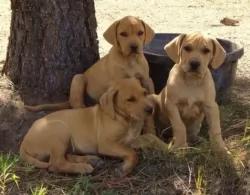 The Mountain View Cur is a very healthy breed without a lot of genetic issues due to the purity and isolation of the breed. No genetic deformities or illness. They are susceptible to a few health concerns.
The Mountain View Cur is a very healthy breed without a lot of genetic issues due to the purity and isolation of the breed. No genetic deformities or illness. They are susceptible to a few health concerns.
Bloat – like most larger dogs, the Mountain View Cur is susceptible to bloat. This occurs when the dog’s internal organs, stomach and intestines become inverted and twisted. This can occur when the dog eats a large meal immediately before or after strenuous exercise.
 The Canadian Eskimo Dog is a generally healthy breed who has a life expectancy of between 10 and 15 years when he is lovingly cared for and provided with a top quality diet. Ensure that he has a top quality diet with plenty of raw meat geared towards his age and energy levels.
The Canadian Eskimo Dog is a generally healthy breed who has a life expectancy of between 10 and 15 years when he is lovingly cared for and provided with a top quality diet. Ensure that he has a top quality diet with plenty of raw meat geared towards his age and energy levels.
The Canadian Eskimo Dog suffers from common health issues that most dogs are at risk for, and typically this will include hip dysplasia and eye disease. If your dog develops a disease such as hip dysplasia, speak to your vet immediately.
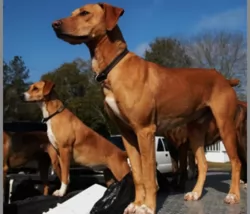 The Mountain View Cur puppy after 12 weeks of age will need to eat 3 meals per day until they are 6 months old. From 6 months to one year they need 2 meals a day. They need high quality dry dog food made especially for puppies that will become large dogs.
The Mountain View Cur puppy after 12 weeks of age will need to eat 3 meals per day until they are 6 months old. From 6 months to one year they need 2 meals a day. They need high quality dry dog food made especially for puppies that will become large dogs.
An adult Mountain View Cur can eat only once a day and be healthy. They need a high quality dry food for large dogs.
Extremely healthy breed with stamina and speed.
The Mountain View Cur is a hunter and an extremely active one at that. They also have herding tendencies. Though they are not hyper, they need a lot of exercise. They also need a job. They want nothing more than to please their person, but they need a job to stimulate both his body and mind. He needs daily walks and a fenced yard to run in. They are good at agility, search and rescue, herding, field trials, police work, and hunting.
 The Canadian Eskimo Dog has always been a working dog, used to being driven hard to perform, and to this day he likes to work hard and have his day filled with activities.
The Canadian Eskimo Dog has always been a working dog, used to being driven hard to perform, and to this day he likes to work hard and have his day filled with activities.
His exercise requirements are high and this is one breed that you’re going to have to exercise regularly – long walks, running on a leash as you cycle, ball games, swimming, hiking. It is why the dog is best suited for life in the country as opposed to small properties in the city. If exercise seems like a lot of hard work for you, don’t buy such a breed as it will be cruel and irresponsible to leave him day after day in your back yard. He becomes bored, frustrated, unhappy and destructive.
The dog is an average shedder and his coat is short and dense. There’s not a whole lot of maintenance to worry about with this good-looking dog and he will basically require having a good brush twice a week.